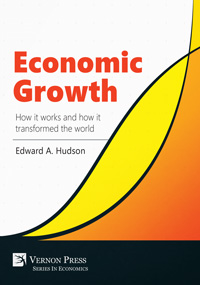Purchase this book
(click here to change currency)
In The National System of Political Economy, List provides a critique of the ideas of Adam Smith and David Ricardo that continues to resonate with policy makers concerned with industrial policy and national economic development. List argues that in contrast with the stylized view of classical economics, real-world economies are organized along national lines and that policy makers can ignore this reality to their peril. The benefits from trade are conditional, rather than universal and the development of sophisticated industry requires carefully designed and sequentially planned state interventions. List provides an early recognition of the existence of distinct stages of economic development, and of the interplay between military power, industrial development and national prosperity. List's work had a formative influence on subsequent strands of thought such as institutional economics and 'national systems of innovation' perspectives and is considered an exemplar of work in the tradition of realist international political economy.
Book I. History
Italy
Hanse Towns
Flanders and Holland
England
Spain and Portugal
France
Germany
Russia
United States of North America
Lessons from History
Book II. Theory
Political Economy and Cosmopolite Economy
The Theory of Productive Forces and the Theory of Values
National Division of Labor and the Association of the Productive Forces of a Country
Private Economy and National Economy
Nationality and the Economy of a Nation
The Economy of the People and the Economy of the State - Political Economy and National Economy
Of Manufacturing Industry, and of the Personal, Social and Political Productive FOrces or Powers of a Country
Manufacturing Industry and the Natural Productive Forces of a Country
Manufacturing Industry and Instrumental Forces, or the Material Capital of a Country
Manufacturing Industry and Agricultural Interests
Manufacturing Industry and Commerce
Manufacturing Industry, Naval and Mercantile Marine, and Colonization
Manufacturing Industry and the Instruments of Circulation
Manufacturing Industry and the Principle of Permanency and Progress
Manufacturing Industry and Stimulants to Production and Consumption
Duties upon Imports and Exports, considered as a powerful means of creating and strengthening the Manufacturing Industry of the Country
Import Duties and the Reigning School
Book III. Systems
The Italian Economists
The Industrial System, improperly called the Mercantile System
The School of the Physiocrats, or the Agricultural System
The System of Exchangeable Value, improperly called by the School the Industrial System - Adam Smith
Continuation of the foregoing J.B. Say and his School
Book IV. Public Policy
Insular Supremacy. The Continental Powers. North America and France
Insular Supremacy and the German Customs-Union
Continental Policy
Commercial Policy of Germany
Friedrich List (1789-1846) was a German economist notable for his contributions to international political economy and his strong influence on the use of trade policy for economic development. List argued that import restrictions would nurture the development of the German economy. List's distinguished career saw him rise to the high ranks of German civil service, becoming a Professor of Administration and Politics at the University of Tübingen before emigrating to the United States in 1825. Tireless in the promotion of his ideas, List edited or contributed to several newspapers. His opposition to the 'cosmopolitan' view of the economy gained recognition with policy makers internationally. He returned to Germany in 1834, to serve as consul of the United States in Leipzig. It was during this time he wrote the timeless classic National System of Political Economy.
See also
Bibliographic Information
Book Title
The National System of Political Economy
Book Subtitle
New Edition
ISBN
978-1-62273-010-0
Edition
1st
Number of pages
386
Physical size
215mm x 156mm

![The National System of Political Economy [Hardback]](/file/277/117feb90c2b03c6f6cfbae0d1a8e6237/1401261882.jpg)



